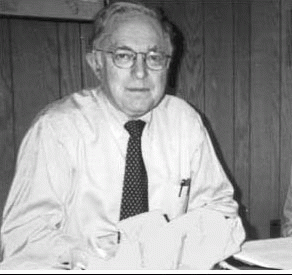As Judge Haiganush R. Bedrosian becomes Chief of Family Court, it is time we banished the ghost of Dr. Richard Gardner, whose coercive tactics in Rhode Island courtrooms have been haunting families traumatized by domestic abuse.
Victims of terror do not present well in court. They are tense, emotional and understandably outraged. On the opposing side, tyrannical controllers can be calm and charming litigants, confident in the damage they have inflicted. Their lawyers, who are often accomplished bullies in their own right, tell astounding lies calculated to trigger a full display of symptoms in the victims.
Psychiatrist Richard A. Gardner designed a stealth weapon in 1985 that he called "Parental Alienation Syndrome." A domestic-violence-denier, Gardner testified for hundreds of fathers and argued that mothers had "alienated" their children against them. Gardner also wrote that sexual relations between parents and children were natural. He told filmmaker Garland Waller that children who report abuse by their fathers should be threatened with a beating. He committed suicide in 2003, but his ghost still haunts our courtrooms. Here are three examples from cases I have been following:
In 2004, Warwick police charged a Family Court deputy sheriff with felony domestic violence when they found his girlfriend handcuffed in their kitchen with a broken jaw and eye socket. Already entrenched in litigation, the deputy sheriff was an often-unruly defendant in the same courtroom where he once kept order. He demanded custody of his ten-year-old daughter, who was terrified of him.
In the corridor during a break, David M. Tassoni, assistant to Chief Judge Jeremiah S. Jeremiah, Jr., told me he was searching for a psychologist who "understood parental alienation." Tassoni found Lori Meyerson, PhD, in a cramped country office and invited her to serve at Family Court, where she testified that the deputy sheriff was a "happy, calm and level person." She had never visited either parent's home when she recommended giving the father sole custody. General Magistrate John J. O'Brien, Jr., praised Meyerson's work and declared this case to be "as close as you can get to parental alienation."
Tassoni told me he was working with Judge Bedrosian and a joint committee from the Court and the Bar Association on a training program to qualify guardians ad litem. Their 2004 course and manual devoted an entire section to Gardner's theory of parental alienation.
Attorney Lise M. Iwon, who is now president of the Rhode Island Bar Association, helped teach that course, though she did not follow its guidelines in writing her report as guardian ad litem in another case. A three-and-a-half-year-old had protested behavior she described as her father's "sausage games" on days they spent alone. A pediatrician's office reported this to DCYF, who ordered the father out of the home. A few months later, the mother filed for divorce.
I asked why Attorney General Patrick C. Lynch had failed to convene a grand jury. He considered the child too young to be believed. Neither DCYF nor the AG used available technology to record this child's "excited utterances" in order to meet standards of evidence. They made no video of her reportedly vivid "reenactment" of an assault. No jury saw the graphic portrait she drew of her father.
(Note: You can view every article as one long page if you sign up as an Advocate Member, or higher).






